In September, there were more mass layoffs -- instances in which employers slashed 50 or more jobs at one time -- than in any month since September 2001, the Labor Department said yesterday. And nearly half a million Americans have filed new claims for unemployment benefits in each of the past four weeks, the highest rate of such claims since just after the terrorist attacks seven years ago.
Anecdotal reports suggest that the hemorrhaging in the job market has only begun. Companies that announced plans this week to cut jobs include Internet company Yahoo (1,500 positions), pharmaceutical company Merck (7,200), National City bank (4,000) and Comcast, the cable company (300).
.....
Villella and others who work with employers said that for many companies, the pullback in hiring is not a direct result of tightening credit. Rather, firms simply don't know whether their own customers will be affected by the financial crisis; as a result, they want to hold their breath and delay hiring decisions until they have a better sense of the future.
The nation has shed jobs every month this year, but at a slower overall pace than in past economic downturns. The slide accelerated in late summer, with declines similar to those in past recessions. Last month, employers shed 159,000 jobs, the most this year and more than the average number of monthly job losses in the terrible labor markets of 2001 and 2002.
More obscure indicators monitored by economists at the Federal Reserve and in the private sector also show an inflection point in late summer. For example, employers had 214,000 fewer job openings in August than in July, according to a Labor Department report. Over the past year, the number of openings dropped by a more modest average of 74,000 per month.
Indeed, many companies are imposing hiring freezes. Such moves don't often get the kind of headlines that layoffs do, but because they shrink the number of places people can turn to for jobs, they still hurt the economy.
Let's look at the data. First we have unemployment claims from Martin Capital:
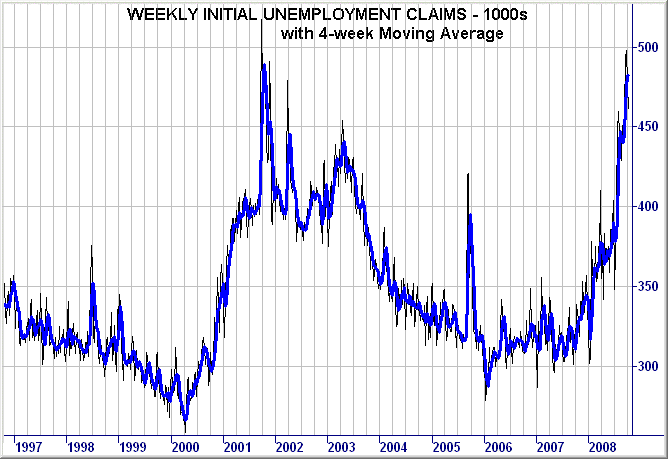
Notice we're at the same level as the 2001 recession.
Number of people unemployed for 5-14 weeks
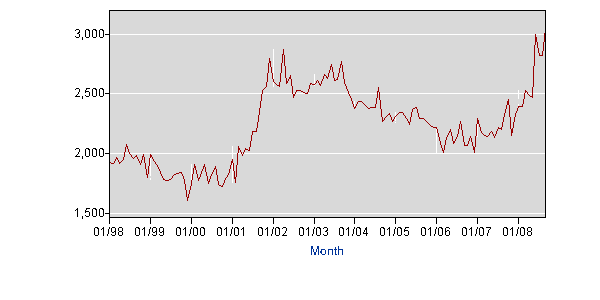
Number of people unemployed for 15+ weeks
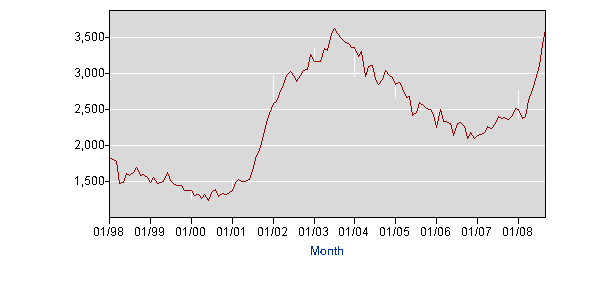
Number of people unemployed for 27+ weeks:
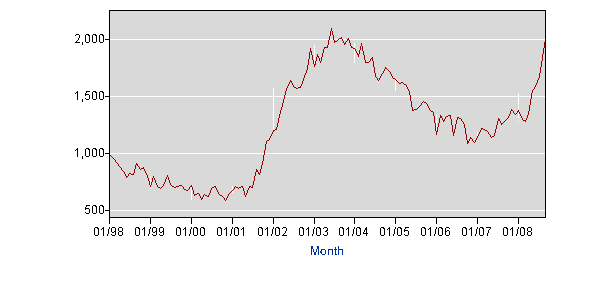
Median weeks unemployed:
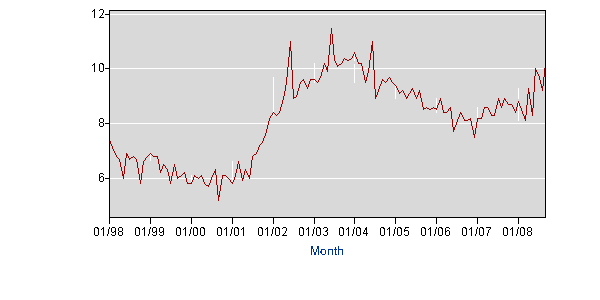
Number of people working part-time for economic reasons:
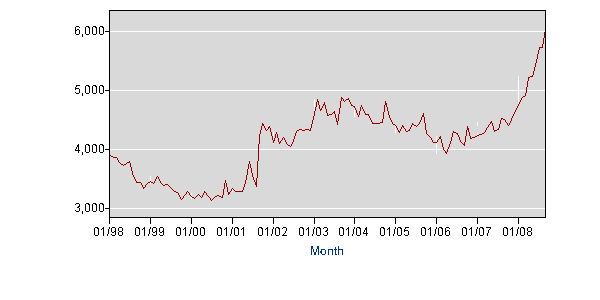
Notice that all of these measures of unemployment are ticking up. That's not good.
Hat tip to Blah3 for the weeks unemployed idea.